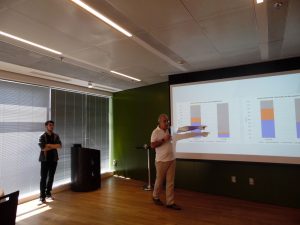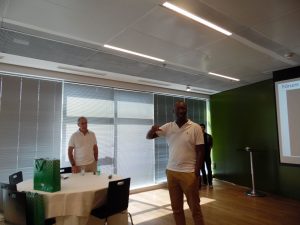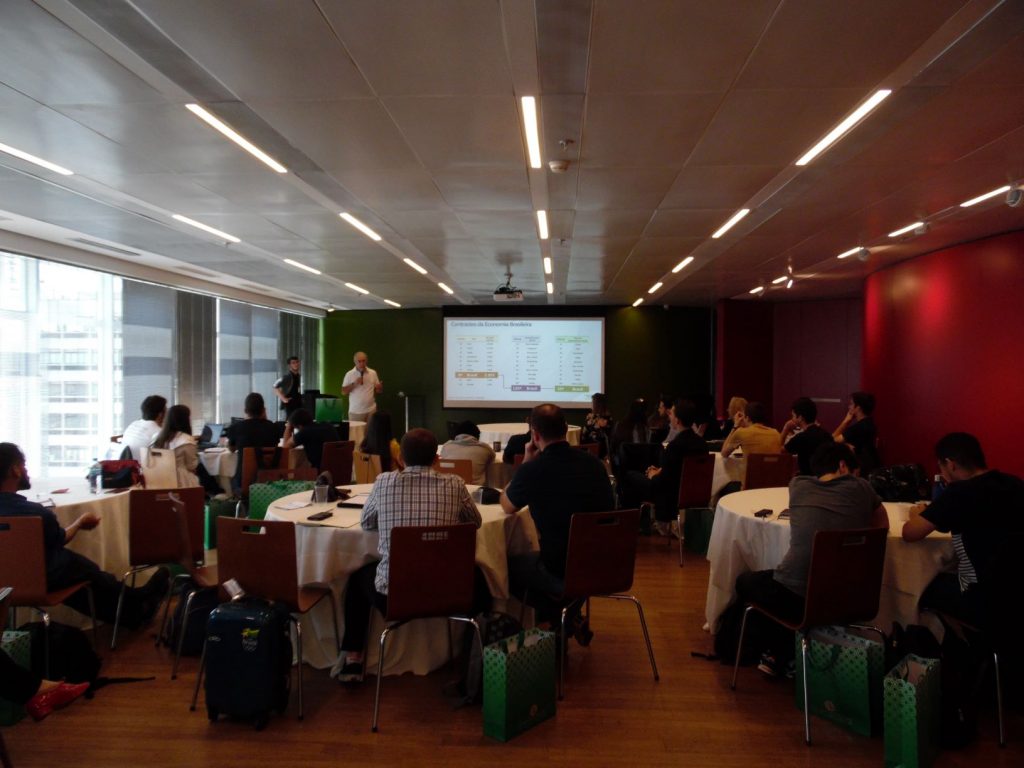São Paulo – Arab Brazilian Chamber of Commerce president Rubens Hannun gave a lecture to students in the Pró-Líder leadership training program last Saturday at the Chamber’s headquarters in São Paulo. Hannun discussed Brazilian foreign trade in general, deals involving Brazil and the Arab world, and the work done by the Arab Chamber.
He also discussed the outlook for Brazil-Arab trade in years to come: “We want to get to 20 USD billion in exports from Brazil by 2022,” he said. Last year, USD 13.6 billion worth of goods got shipped from Brazil to the region. In other words, sales will need to increase by 47% in order for the target to be achieved.
According to Hannun, the Arab Chamber intends to work on reaching additional trade agreements between Brazil and Arab countries; on strengthening the “Brazil brand” in the region; on creating opportunities in food security; on getting Arab direct investment into Brazil; and on encouraging deals which factor in sustainability.

Regarding food security, he said Middle East and North Africa countries are not self-sufficient when it comes to food production, and that a major concern for them is to ensure their populations get access to supplies. Brazil, in turn, is a leading producer and exporter of a number of agricultural items.
“The fact that Brazil is a leading player in agribusiness adds value to the country, because being a leader requires high yields and very heavy investments in creating state-of-the-art farming. And the world is watching,” he said.
Hannun announced that the Arab Brazilian Chamber will present a study on food security during the 6th Arab Conference for Investment in Food Security, to be held by the Union of Arab Chambers – which the Arab Chamber is a member of – on November 14 and 15 in Fujairah, the United Arab Emirates.
“We will present this study there. The Chamber intends to be a curator of Arab investment in Brazil. Arab investment funds manage about USD 2.3 trillion,” said Hannun.
Iceberg
He also said the Arab Chamber’s mission is to “connect Brazilians and Arabs to promote economic, social and cultural development.” Hannun gave special emphasis to the relevance of interchange in other fields when it comes to fueling trade.
The executive drew a comparison with an iceberg, whose above-water portion represents business, while the submersed part underpinning the iceberg includes efforts in diplomacy, cultural exchange, tourism, social cooperation, branding and other actions that ensure a country will rise to the forefront in its relations with other countries, blocs or regions.
“We aren’t looking to just sell. We have social responsibility here and in the Arab countries,” he said. This is why the Arab Chamber joins initiatives that relate to things other than trade.” Without the building of cultural rapport, deals do not take place in a natural, sustained way,” he said. In 2019, for instance, the Arab Chamber intends to hold an art exhibit in Brazil in partnership with Paris’ Institut du Monde Arabe (IMA).
Hannun also said the Chamber’s work often exceeds the boundaries of the Arab world. As a case in point he mentioned SIAL Paris, one of the leading food industry shows in the world, set to run from October 21 to 26 in the French capital. For the second time straight, the Chamber will hold a Halal Day at the show, relaying information about Brazilian halal food manufacturers to Arab business executives.
“The bringing of peoples together does not depend on where they are. Arabs attend this fair often, so we’ll go wherever they are,” he said.
Halal goods are made in accordance with religious tradition and therefore fit for consumption by Muslims. The halal industry is not specific to Arab countries, since it includes all Islamic nations and Muslim populations around the world. It’s worth an estimated USD 3 trillion.

“Brazil is beginning to be recognized by Arabs as a supplier of halal products,” Hannun noted. The country ranks 35th on the list of general halal item suppliers; 4th on the list of halal food suppliers; and 1st when it comes to halal animal protein. In other words, Brazil is the leading halal meat exporter in the world. The country’s halal cosmetics industry is beginning to thrive with great promise.
Hannun also revealed that in 2020, the Arab Chamber intends to hold a new Brazil-Arab Countries Economic Forum similar to the one that saw hundreds of business executives and authorities from both regions flock to São Paulo last April.
Young people
Wellington Vitorino, CEO of Pró-Líder organizer Instituto Four, said 5,600 students applied and 41 were selected to engage in 180 hours’ worth of activities over the course of seven months. They are aged 16 to 35 (the average age is 23 years and 8 months) and come from 16 different states.
He said Hannun’s lecture was key in providing a different take on foreign trade, since attentions are currently too centered on Asian markets.
Translated by Gabriel Pomerancblum




